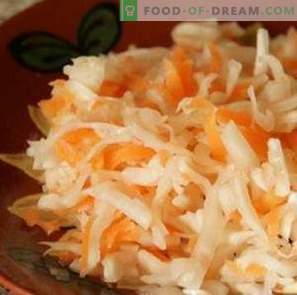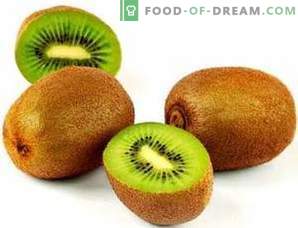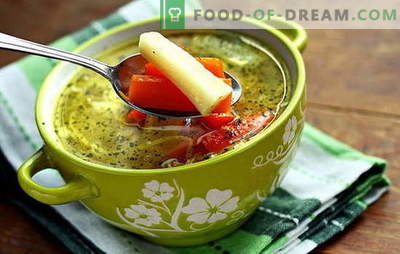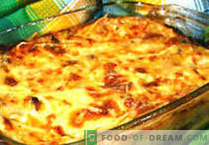
Winter is approaching and pickling-pickles time begins. The dieters reduce their cheekbones - how do you want all of this variety, salty, sour, sharp. But the iron willpower says firmly not, but does this make sense? Salted barrel or pickled cucumbers fell into disgrace because of salt, everything is clear with them - they retain water and lead to swelling. But sauerkraut, according to the recipe, is made practically without salt-sugar, all its divine taste is the result of fermentation. If fresh cabbage is an unconditional dietary product, then can pickled and also successfully satisfy the hunger of those who count every calorie?
How many calories in sauerkraut
In one hundred grams of white sauerkraut only 23 calories, while in fresh white cabbage there are 28 calories. It turns out that in the process of ripening the cabbage becomes even more dietary. Isn't this great news? Sauerkraut, due to such a low calorie content, is the best vegetable garnish for any product, not even the most useful - fried meat, boiled potatoes, porridge.
Someone likes to eat sauerkraut in its “original form”, without cranberries, pickled cucumbers, vegetable oil. But many people still prefer to flavor the cabbage with sunflower oil, which only makes it more fragrant and healthy. Calorie sunflower oil - 900 calories per 100 grams. For filling cabbage, three to five grams is enough, that is, with oil, the caloric content of sauerkraut grows from 23 calories to 50-68 calories. Of course, the nutritional value of sauerkraut when adding oil increases significantly, but the caloric content increases by 2, 5 times, and this is a lot. Sauerkraut is not only a tasty and dietary product that brightens up our diet from mid-autumn to the first spring vegetables. It is also very useful, as fermentation preserves many vitamins and minerals.
One hundred grams of white sauerkraut contains 1, 7 grams of protein, 0, 2 grams of fat, 3, 1 gram of carbohydrates, 2, 2 grams of dietary fiber, 1, 12 grams of organic acids, 89, 02 grams of water , 2, 91 grams of mono- and disaccharides, 0, 13 grams of starch and 3, 24 grams of ash.
It contains the following vitamins:
- vitamin PP - 0, 5 mg;
- Vitamin B1 - 0, 03 mg;
- vitamin B2 - 0, 024 mg;
- Vitamin C - 30, 2 mg;
- Vitamin E - 0, 12 mg;
- vitamin PP - 0, 6 mg.
Macro elements and trace elements:
- calcium - 48, 1 mg;
- magnesium - 17 mg;
sodium 929, 8 mg;
- potassium 301, 6 mg;
- phosphorus 31, 5 mg;
- iron - 0, 7 mg.























